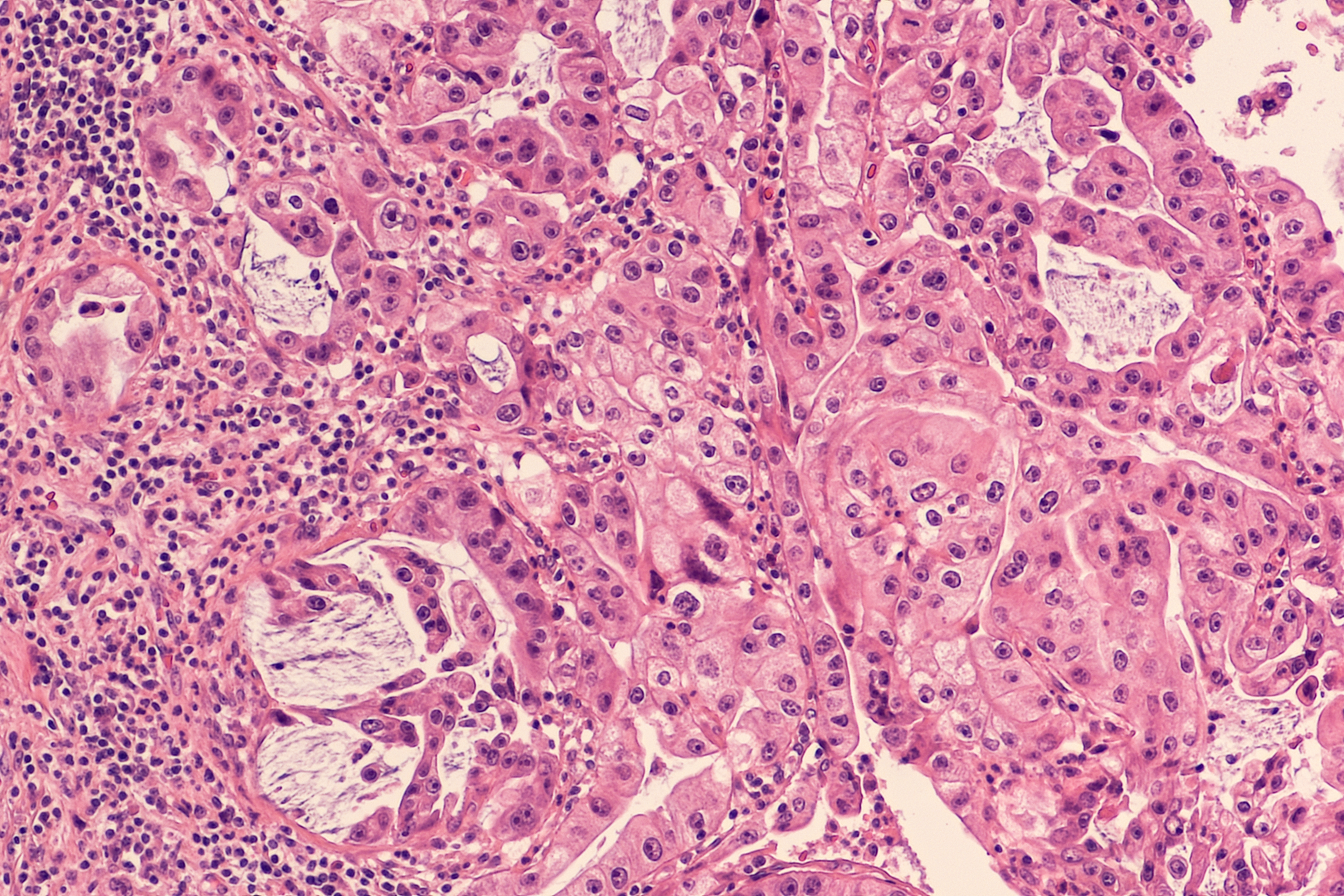European consortium to use AI to improve pancreatic cancer treatment
Published: 10 March 2021
The University of Glasgow will play a key role in a new pan European consortium, using artificial intelligence to improve treatments for pancreatic cancer.
The University of Glasgow will play a key role in a new pan European consortium, using artificial intelligence to improve treatments for pancreatic cancer.
PANCAIM will improve treatment for pancreatic cancer patients, utilising tools such as artificial intelligence, integrated genomics and medical imaging. Dr David Chang from the Institute of Cancer Sciences will lead the work for the University of Glasgow, and will bring a wealth of experience in precision medicine in pancreatic cancer.

PANCAIM is a four year Horizon 2020 funded project, and is a partnership between the University of Glasgow, the Karolinska Institute, Radboud University in the Netherlands, the Spanish National Cancer Research Centre, Oslo University Hospital, and industry partners, Siemens, SMEs Collective Minds Radiology, The Hyve and is project managed by Amires.
The University will be one of the clinical partners of the consortium, contributing multi-omics datasets, and also defining the clinical relevance and the modelling of the AI algorithm in the management of patients with pancreatic cancer. Dr Chang and his team will also contribute to the consortium by generating research AI algorithms in genomics, transcriptomics and digital pathology, leveraging the University’s expertise and track record in precision medicine in pancreatic cancer and its leading role in Precision-Panc.
Pancreatic cancer is often quickly fatal, and the incidence of the disease is rising. Patients with the disease face the lowest survival of all cancers in Europe (median survival time 4.6 months). Europe has the highest incidence of pancreatic cancer, with 100,000 new cases in 2018, and 95 000 deaths per year, indicating almost universal fatality. Worldwide, the figure is higher, at half a million deaths each year. Data suggests that pancreatic cancer will soon become the second leading cause of cancer-related death in Western societies.
Dr David Change said: “Pancreatic cancer is a devastating disease, with one of the lowest survival rates in all cancer types, and urgent novel treatment strategies are needed. Over the years, we have and are continuing to generate and accumulate large multi-omics datasets of genomics, transcriptomics, digital pathology and radiology.
“We now have the computer power and artificial intelligence algorithm to interrogate these data in a way we never did before, which will help better understand the disease and ultimately how to better treat it. I am very honoured to be part of this European Commission Horizon 2020 initiative, and we hope we can unleash the power of AI to find better treatments and management for our patients with pancreatic cancer.”
PANCAIM will optimize and integrate genomics and imaging phenomics using artificial intelligence. Firstly, to help generate breakthrough knowledge to increase understanding of pancreatic cancer biology. Secondly, to develop trusted, impactful AI applications for regular clinical use. The aim is to help clinical decision-makers to give the right treatment to the right patients at the right time, and to improve treatment outcomes, avoiding the current costly trial-and-error use of expensive drugs with strong side-effects.
PANCAIM builds on four key concepts of AI in Healthcare: clinical expertise and high amounts of carefully documented data, AI experts, and MedTech companies to collect the data and bring AI to healthcare. Six top-expert clinical partners provide eleven Pan European repositories of almost 6,000 patients open to ongoing accrual. These clinical centres treat more than 2,000 pancreatic cancer cases each year.
SME Collective Minds builds a trusted, GDPR-compliant platform connecting to clinical centres and hosting the research AI, while fellow SME The Hyve builds tooling to connect to worldwide genomic repositories and help scientifically explore the data. Three partners provide expertise in AI healthcare across all the clinical modalities involved. Finally, Siemens Healthineers provides their AI expertise and clinical tooling to bring PANCAIM solutions into healthcare. Ultimately these tools will be clinical validation and ready for swift clinical integration in 3,000 health care institutes.
Enquiries: ali.howard@glasgow.ac.uk or elizabeth.mcmeekin@glasgow.ac.uk / 0141 330 6557 or 0141 330 4831
First published: 10 March 2021

